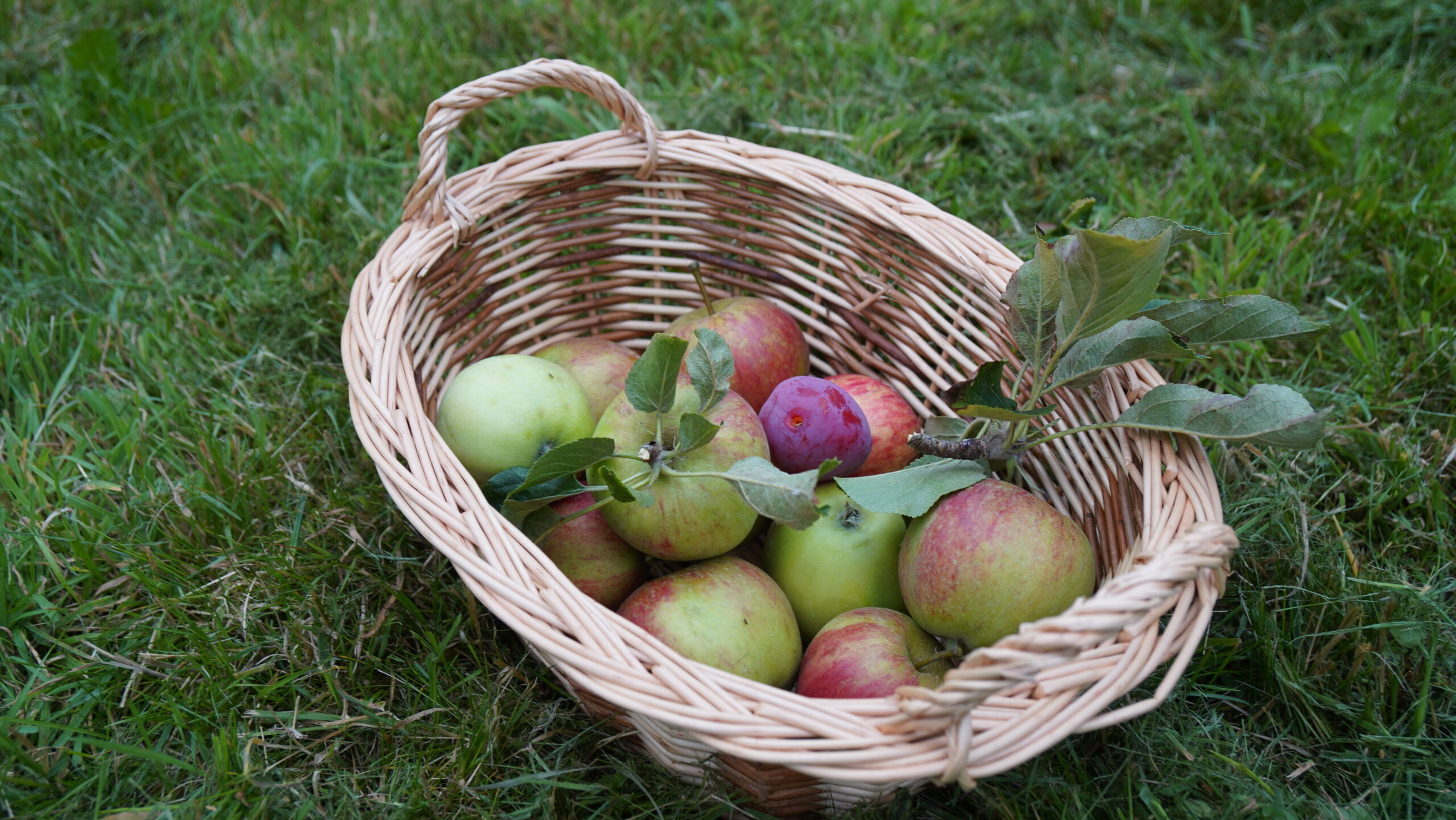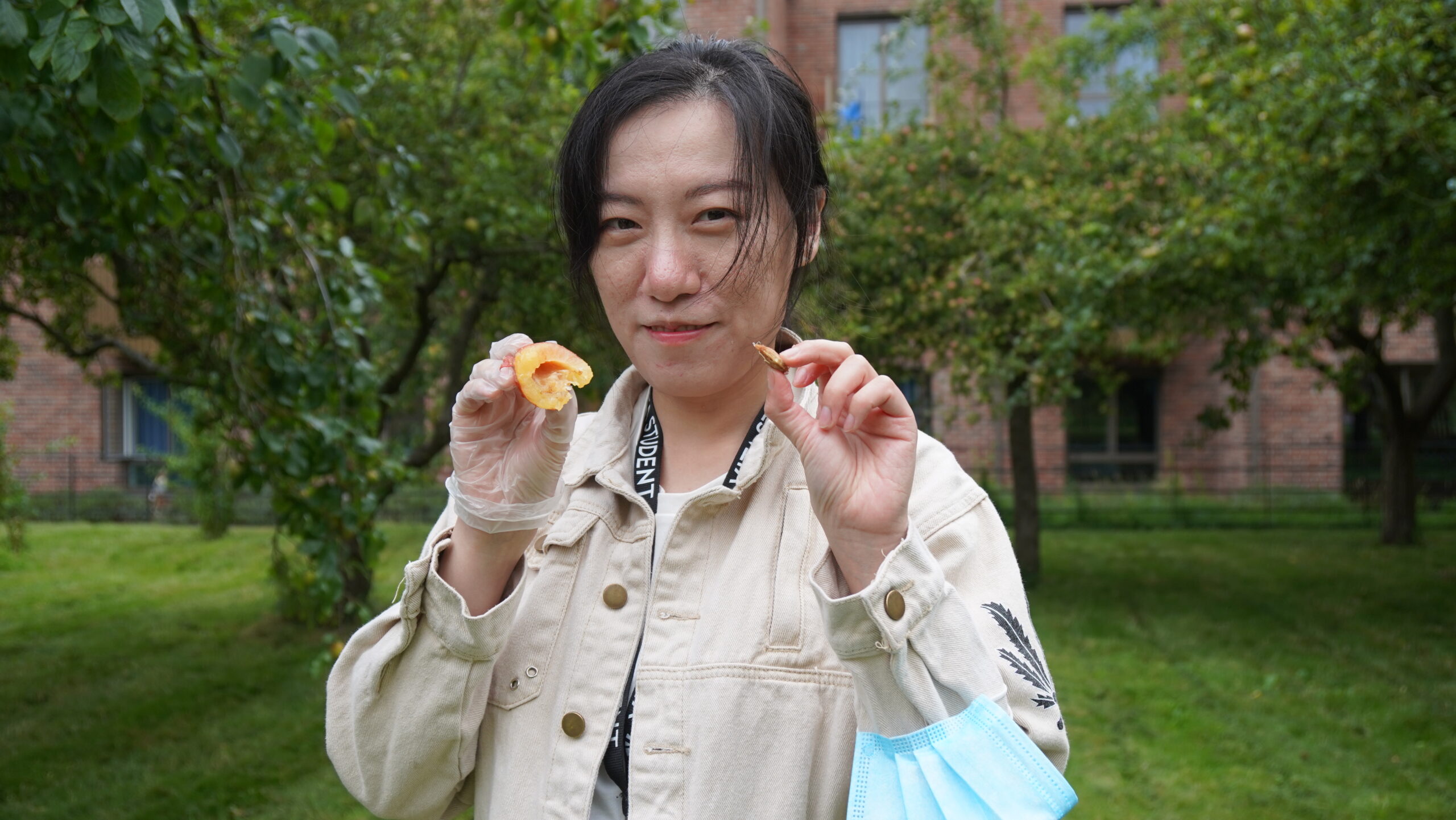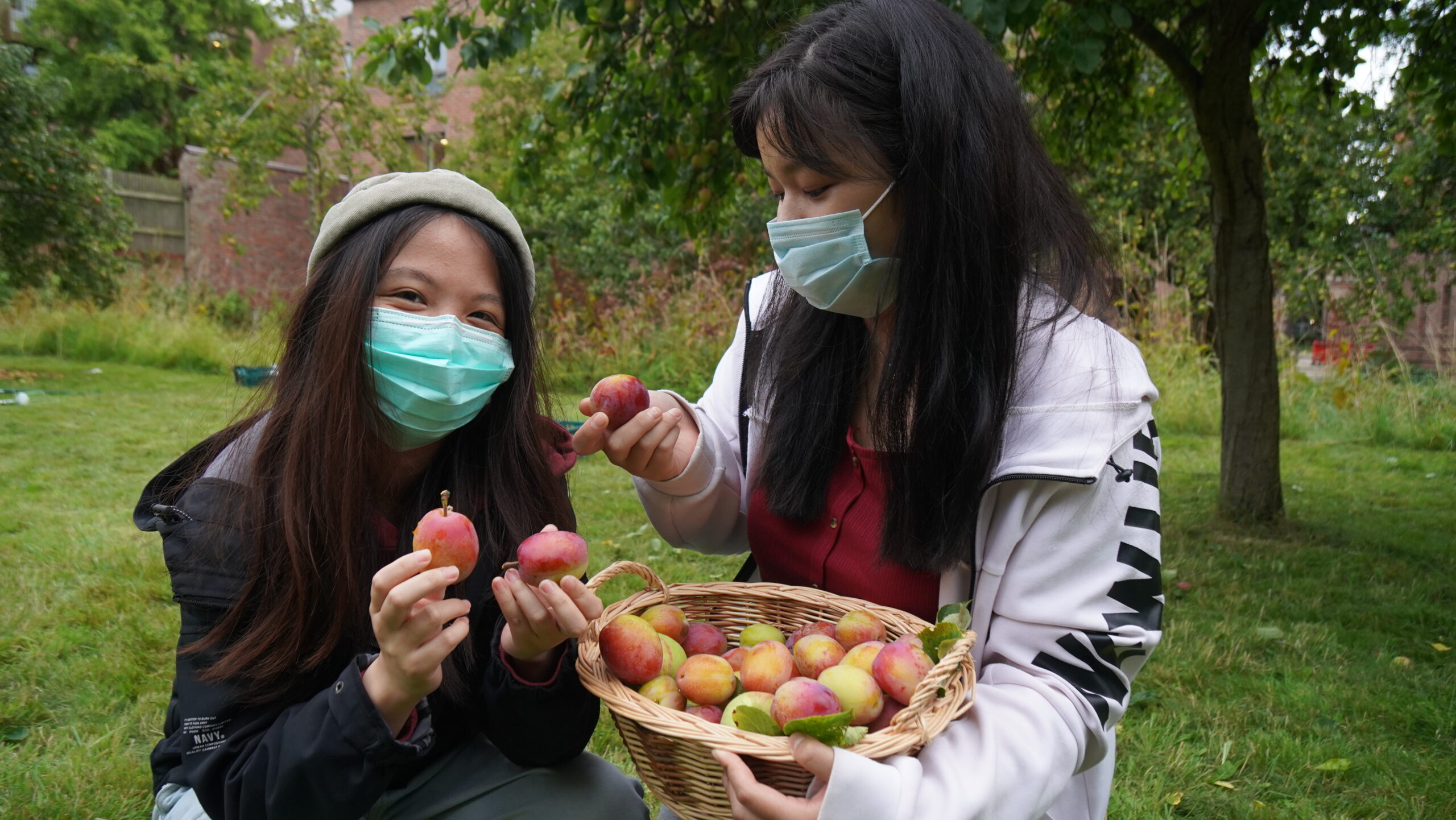When life gives you apples, don’t waste them.
Our sustainability project in York is underway, and this month we have hundreds of home-grown apples and plums ready to be picked from our urban orchard.
Growing your own food is one of the best ways in which we can do more for, and with, our natural environment. By practicing at-home horticulture, you’ll protect the planet from more plastic, airplane emissions and pesticides.
However, growing too much produce leaves room for a lot of waste – and that is a huge problem in itself.
It’s estimated that around a third of all food in the world ends up in the bin, and if food waste were a country, it would have the third-largest carbon footprint after the USA and China.
Our apple and plum trees proved fruitful this year, but we were determined not to see any of it go to waste. So, we invited a local charity, Edible York, to visit the garden and help us make use of the surplus.

York’s Assistant Residence Manager, Jess said: “The charity will use it in food banks and [will give the fruit] to other charities in York who work with low-income families that can’t get access to fresh fruit and veg.
“We’ll also provide the fruit to our residents and to the public.”
A group of our students came together to pick the fruit from the trees and give them to Louise, who works on the charity’s ‘Abundance York’ project.
“There were quite a few things I liked about working on the grounds. It gave me a connection to nature,” said Wen, one of our York residents.

Wen used to help her grandma in the garden growing up, so enjoyed learning more about the types of apples growing on-site.
“I can see the orchard directly from my room window, so I have actually seen how the orchard looked like in winter and how the trees have become drooping with lots of apples. I felt really relaxed when working together and having fun with other people on the grounds. It was a great chance for me to release the pressure from study.”
Over the past two years, a UK poverty charity called The Trussell Trust delivered over 10,000 emergency food parcels to hungry people in York, and record numbers of people in the city have turned to food banks to feed their families through the pandemic.
This reality is even more shocking when we know that the UK throws around 9.5 million tonnes of food in the bin each year – most of which is still totally good to eat.
Louise from Edible York told us: “It is sometimes shocking what you see turn up at some of these food banks. Sometimes there’s a mountain of bananas or a mountain of bagged apples.
“We start off by sending them to places that are feeding people in need, but also I’m hoping that students will want to eat some of it. It’ll be good for them to realise that they can eat what’s growing on the trees where they live.”

This increasing waste problem is, in part, driven by supermarkets rejecting “imperfect” produce – perhaps it is slightly misshapen or discoloured. However, we, the ordinary people, also have a part to play. We contribute to the crisis when we dispose of our leftovers or buy more food than we can consume.
The edible waste that we produce, as a collective, contributes 14 million tonnes of CO2 equivalent a year, which is as much greenhouse gas produced as flying from London to Perth 4.5 million times.
So, what can we do, as individuals to cut down on food waste?
1. Buy what you need
The most important thing that we can do is to only buy as much food as we need. Did you know that every day, over 4 million potatoes go to waste in UK homes? When you shop small, not only will you save money, but you’ll also saving harmful gas emissions being released into the atmosphere in the process.
2. Be creative with your leftovers
Most household food waste comes from meal leftovers – even though that food still has so much potential. Spice up your leftover roast chicken by shredding it into a curry, use your cooked veg in a Spanish breakfast omelette or make burritos with your leftover chilli con carne.
3. Embrace imperfect foods
Let’s stop being shallow when it comes to our food. Perhaps your apple isn’t the prettiest in the bag, but it could be the tastiest. Besides, imperfect food works perfectly for stocks, smoothies and soups – so get the blender ready.
4. Freeze it
There’s plenty of ways that you can extend the life of your food with your freezer. Make your meal prep simpler by freezing ziplocked bags of chopped vegetables, ready to throw straight into the pan. Or, simply freeze tubs of your leftover meals to enjoy for weeks to come – especially helpful when you’re too busy to cook.
Vita Student York will be donating to Edible York on a weekly basis, however there will be fresh fruit outside the building that is free for the public to take and enjoy.
To find out more about the charity’s Abundance project, click here.


